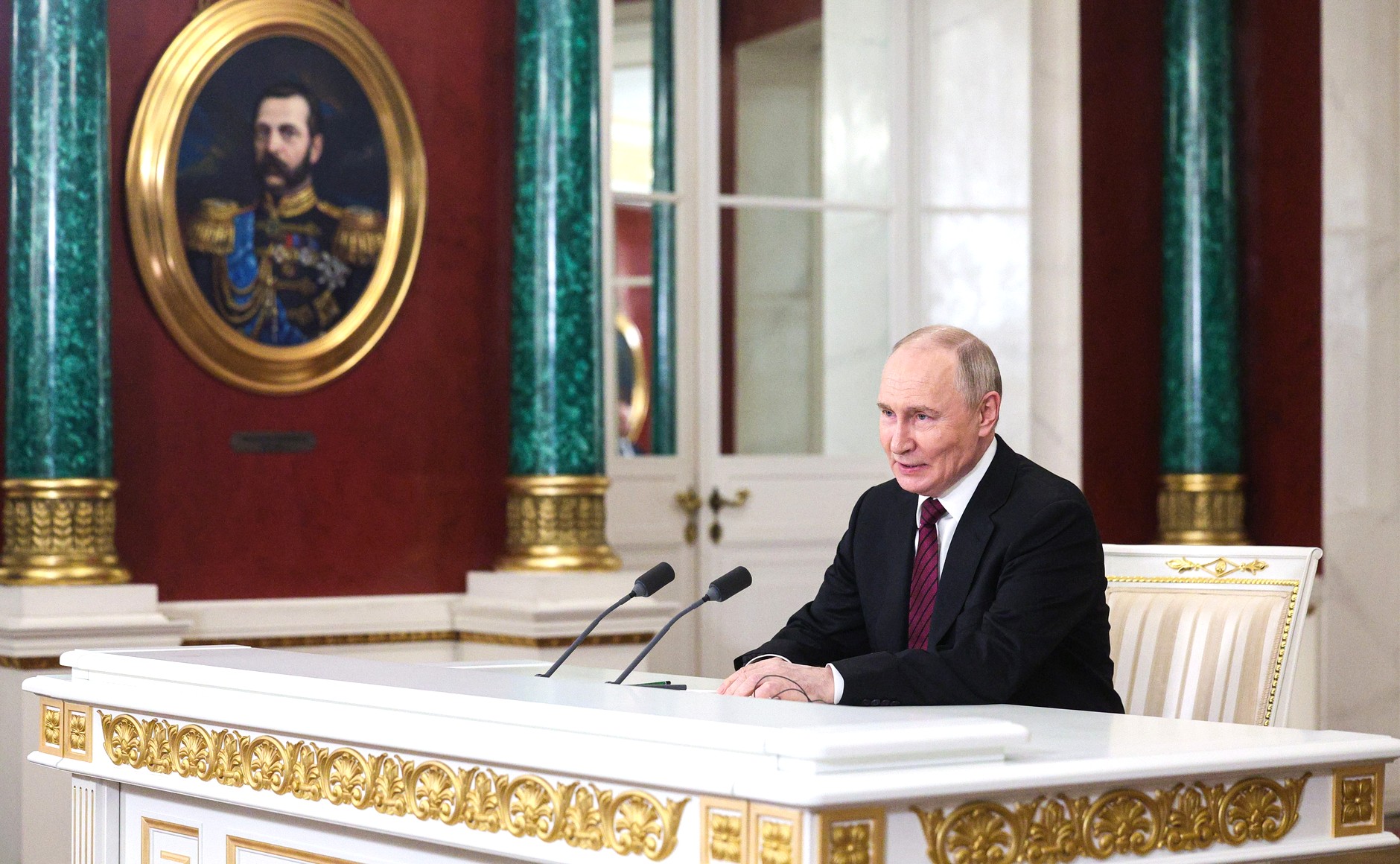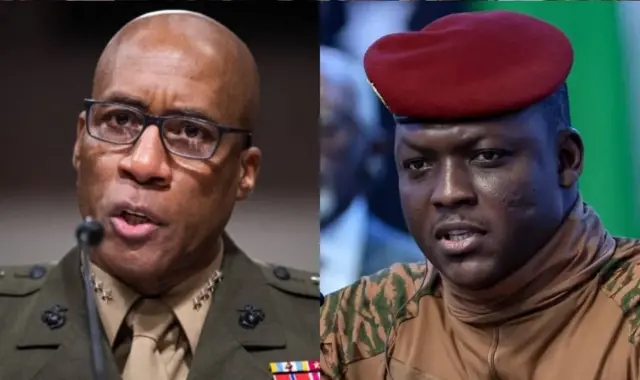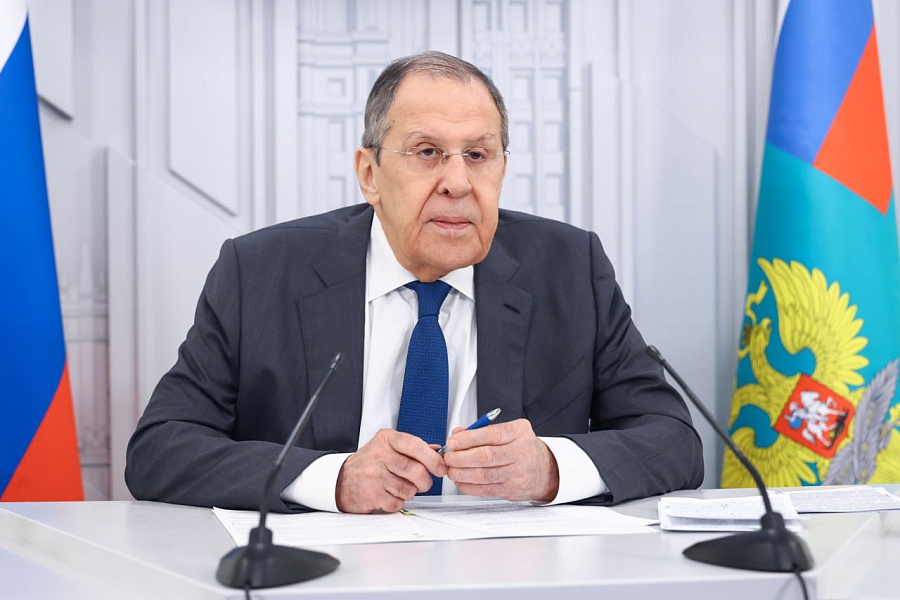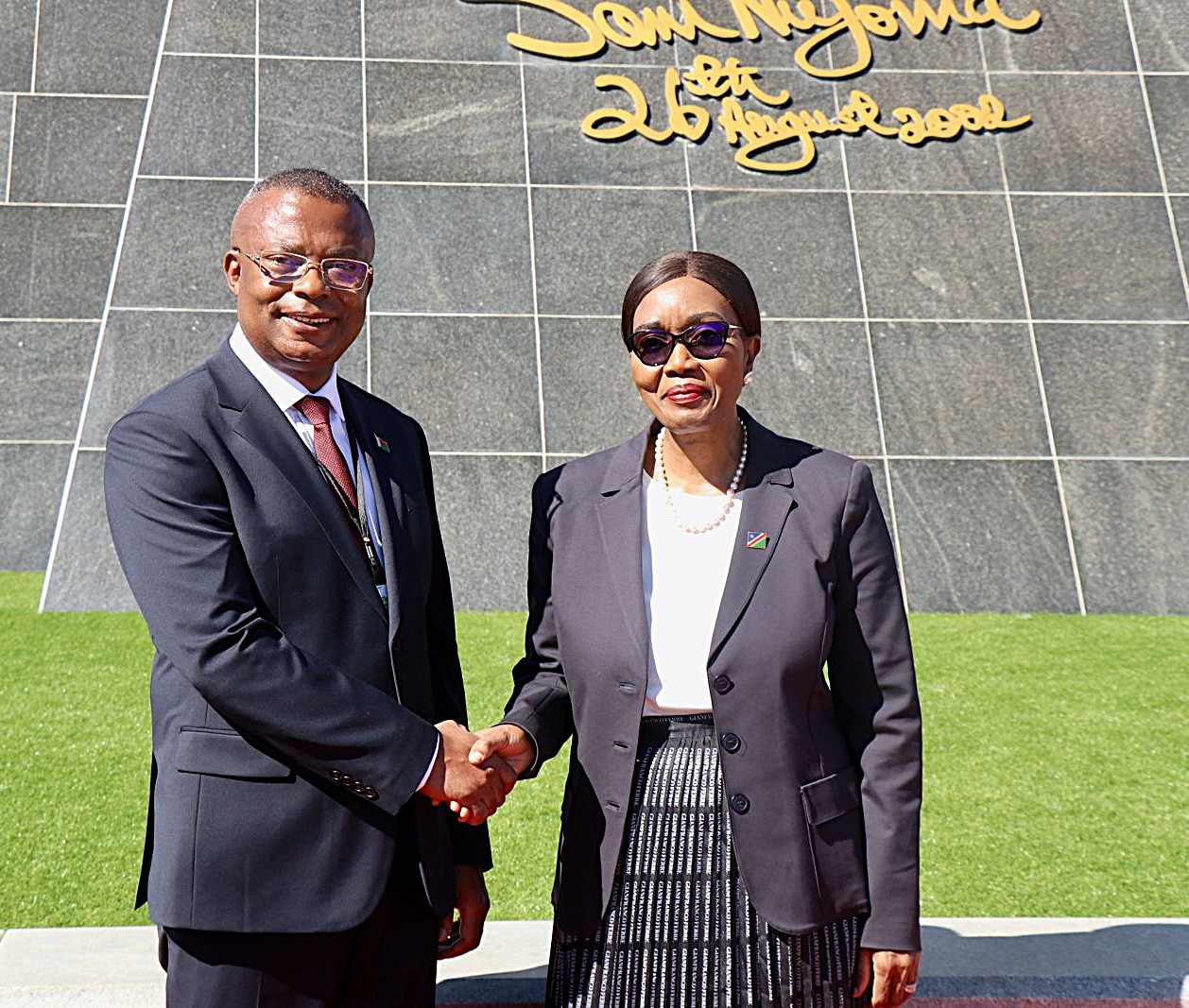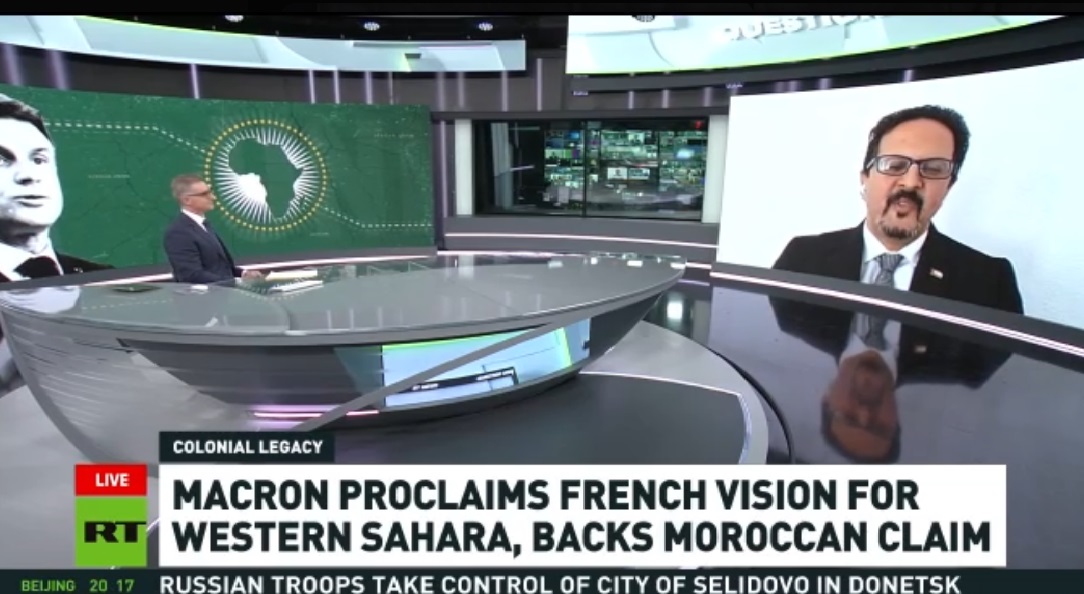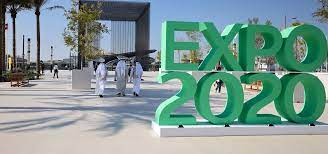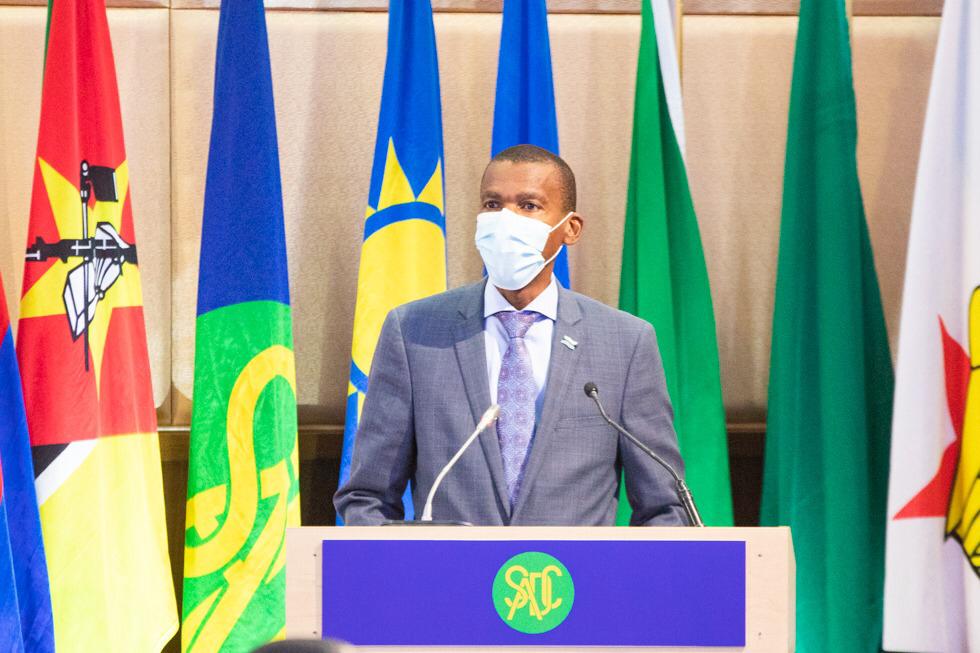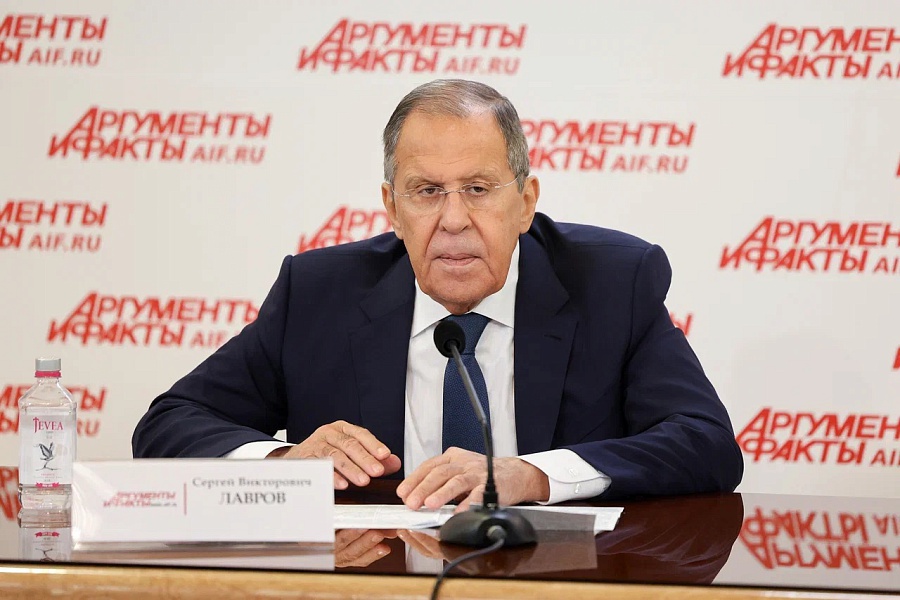
Интервью-СВЛ-для-АиФ
Question: Let me commence with BRICS. A significant number of countries, approximately 30 or perhaps more, have voiced their intention to join this group. Notably, Türkiye, a NATO member, which was rather surprising to me. Conversely, it has been reported that Kazakhstan, through the statement of President Kassym-Jomart Tokayev’s Press Secretary, has expressed no intention of joining BRICS in the foreseeable future. Why is there such activity and interest in this group of nations? Why is everyone invited to join it? What are the future prospects for BRICS? Is it not in competition with other international entities?
Sergey Lavrov: BRICS epitomises the shifts that have long been underway in the global economy. New centres of economic growth are emerging, and alongside them comes financial influence, which in turn brings political influence.
For more than a year and indeed over several decades, the epicentre of global development has been transitioning from the Euro-Atlantic region to Eurasia and the Asia-Pacific region. This trend was first observed by economists from a private Western bank, which identified the world’s fastest-growing economies. The term BRICS originates from this study, based purely on objective statistical data.

It was at that juncture that BRICS began to take form, completing a process initiated by Yevgeny Primakov in the 1990s. He proposed the initiative to hold regular meetings within the framework of the Russia-India-China (RIC) troika. This troika remains in existence. Although they have not convened for some time due to the pandemic and other circumstances, it persists as an independent mechanism. Subsequently, Brazil joined the RIC, transforming it into BRIC. Thereafter, South Africa joined the ranks, and BRICS was established (in the context of the analysis I referred to), representing the fastest and most consistently growing economies among the World Majority nations.
Since then, BRICS has prioritised the needs of its nations, and interest in the grouping continues to grow. It is a consortium where no single nation leads or is led, devoid of the bureaucratic machinery akin to that observed in Brussels, where EU officials impose decisions that contravene the will and interests of several member states, failing to align with the aspirations of voters across many countries. Rather than addressing the challenges faced by EU members, the Brussels bureaucracy is preoccupied with the transfer of arms to Ukraine, raising funds for this purpose, and undertaking other actions detrimental to the economy, social sphere, and industry of EU member states.
BRICS, conversely, does not compel any nation to make sacrifices. Recently, German Foreign Minister Annalena Baerbock remarked – and later reiterated – that she is aware German voters face hardships due to Germany’s support for Ukraine, acknowledging a scarcity of resources for all, yet advocating patience. This logic of pressure from the European bureaucracy in Brussels, which seeks to dictate terms to its voters and member states, is entirely absent within BRICS.
Unity does not stem from artificial constructs. NATO has resolved to contain Russia, leading to endless expansion and the imposition of sanctions, solely to prevent our nation (a similar approach is adopted concerning China) from emerging as a formidable competitor. In essence, the bureaucracy has set this agenda. Within the European Union, NATO sets objectives, and American influence dictates these terms. Essentially, it is one and the same, as the Brussels bureaucracy remains entirely beholden to Washington’s directives.
Within BRICS, there is no imposition of such artificial objectives, nor is there an intention to contain any nation. This grouping does not stand in opposition to any entity, nor does it orchestrate operations or initiate projects. BRICS is committed to enhancing the combined potential of its nations and devising collaborative strategies for harnessing these potentials for mutual benefit. Consequently, rather than relying on artificial constructs, BRICS formulates plans and projects based on real-world needs. Experts from various fields including economy, trade, logistics, transport, communications, and modern information and communication technologies convene. Recently, tax service experts assembled to share experiences and present capabilities. This collaboration elucidates how to amalgamate these potentials for the advantage of all nations. This is precisely what renders BRICS appealing to the World Majority nations.
In 2023, a number of new countries joined BRICS at the summit in Johannesburg, South Africa. Despite the twofold increase in the number of members, the group decided to keep its original name, which is already a well-known and established brand. You are right – about 30 countries seek to establish ties with the group today. Some of them have applied to join as full participants, and others to participate in the BRICS Plus/Outreach format. We are ready to invite them, and have invited them before to various events as guests of the chair.
Following the decision of last year’s summit, we are working at the level of experts and ministers to prepare a proposal on a new BRICS partner country category. Partner countries will enjoy broad rights and privileges, almost equal to the permanent members of BRICS, with just a few exceptions. The proposal will be presented to the BRICS leaders at the Kazan meeting.
One of the countries that announced their interest in becoming a participant in BRICS – and did it publicly – was Türkiye. The country is indeed a member of the North Atlantic Alliance. Recently, Turkish Foreign Minister and my good friend Hakan Fidan made a thought-provoking comment on the subject. For decades, Türkiye has not been allowed to join the European Union, with respective talks hindered in every possible way. It is unlikely that the EU will ever change its negative stance, which is another argument in favour of Türkiye’s increasing rapprochement with BRICS. But the Republic of Türkiye is also part of many other movements and associations.
You mentioned the statement by the press secretary of President of Kazakhstan Kassym-Jomart Tokayev, who said that the republic is unlikely to apply for BRICS membership in the foreseeable future because global issues should be handled by the United Nations, a universal organisation that has no alternatives.
This approach needs to be clarified. Kazakhstan is a member of several associations including the OSCE, CIS, CSTO, and the SCO, and actively participates the Organisation of Turkic States. Türkiye is vigorously promoting stronger ties among these fast-growing economies today. That organisation is actively engaging some of our Central Asian allies and strategic partners. However, none of this prevents Kazakhstan or other Central Asian countries from participating in the United Nations, which is indeed a universal platform, but is currently going through a crisis that we are not responsible for. It seems to me that somewhere down the road, our southern neighbours, our allies in the CSTO and the EAEU, will above all see direct benefits for themselves from rapprochement with BRICS. They do not have to join BRICS, but they should collaborate in the implementation of specific projects, which is in the interests of all of us.
What makes BRICS and other World Majority or Global East associations that do not include Western countries stand out, is that they are not created for the purpose of struggling or fighting with anyone. They are established to collectively benefit from their competitive advantages such as geographical location, shared history, cultural and humanitarian proximity, and coherence of economic systems, as is the case of the former Soviet republics. This is an objectively occurring process.
Unlike this, the West has been proving time and again that it is not just willing, but never hesitates to use illegal sanctions against any country it sees as a threat to its economic domination, violating the global market economy principles it supposedly champions. All countries see this, of course. Knowing this, naturally no one wants to suddenly become the target of unrighteous anger if some Western leader gets out of bed on the wrong side. You never know who they decide to sanction next.
Predictably, the SCO, the EAEU, ASEAN, the African Union, CARICOM, the GCC and other associations are now increasingly focusing on protecting their economic interaction mechanisms from arbitrary attacks. As the West has proven, virtually any state that pursues an independent policy in the international arena can be targeted at any time; no one is immune.
Question: On to the American bloc of questions. Presidential elections in the United States will take place in less than a month. Do you think their outcome will influence the Ukrainian policy of the United States? Or, is it already set in stone to the point where it doesn’t really matter who sits in the White House?
Sergey Lavrov: Political talk shows in Russia are discussing this all the time. They delve deep into details and keep an eye on the percentage gap between the candidates and numbers shown by the opinion polls.
Regardless of the election outcome, we will remain an opponent, if not an enemy, for the United States. In any case, they see us as their competitor. Americans view any international issue and any international dialogue partner primarily from the viewpoint of unacceptability (it is stated in their doctrinal documents) of anyone on this planet getting stronger than the United States.
Clearly, this is an utopian approach. If we take a look at the growth of gross domestic product contributed by different countries to the global GDP, we will see that the share of the United States has been steadily declining, while that of China, India, and BRICS as a group has been steadily increasing. The BRICS’ combined GDP has exceeded the combined GDP of the Group of Seven by about 5 percentage points.
The United States is unwilling to relinquish the reins of power that they have held since World War II through the Bretton Woods institutions and through the role assigned to the US dollar in the international monetary system, even after free exchange of US dollars for gold had been cancelled. The leading position of this currency is maintained by efforts that are largely artificial.
Looking at statistics, GDP, and other numbers that determine the voting share of the IMF member countries, the United States would have long ago lost its veto power over decisions made by the IMF Board of Directors, if this statistics found their way into actual decisions. They are stalling the IMF reform advocated by BRICS, just as they are stalling the WTO reform, where the work of the dispute resolution body has been blocked by the Americans for many years now. Every fair complaint or a lawsuit (call it what you will) that are filed to this body in large quantities, including by the PRC, whose products are increasingly and grossly discriminated against not only on the US, but also on the EU market, are put aside and never acted upon.
All of the above reflects the key goal of the US ruling class which is to make sure no one can undermine their dominance. This goal is illusory. The historical process is objectively heading in a different direction, and this has to be reckoned with.
Following up on the question of which candidate or which US party is a more preferable choice for us, I can only say that we should gear up for continued attacks on our interests. The attempts to contain our development will continue under any US administration.
On the other hand, we are ready to interact with any administration voted in by the American people, but only if such a dialogue is mutually respectful, and both parties listen and hear what the other party has to say. We are keeping track of the electoral battle in the United States and are seeing no signs of us ever resuming such a dialogue.
Donald Trump and his running mate keep talking about resuming the dialogue in order to resolve one issue in 24 hours and another issue in 72 hours. We will know what it means only when the new administration takes office and formulates its position. To reiterate, we have never avoided dialogue, and we did not interrupt it. Importantly, the Russian Embassy in the United States remains operational. The Americans are obstructing our diplomatic mission in Washington from carrying out its duties, and we are forced to respond in kind. Dialogue is at the heart of diplomacy. We are ready for it on the terms that are in line with the purpose of diplomacy.
Question: We cannot say who presents a greater challenge to us – Donald Trump or Kamala Harris – can we?
Sergey Lavrov: We shall await the expression of the will of the American people.
Question: In the context of NATO’s nuclear exercises in Europe, a statement has emerged from US President Joe Biden, suggesting that Russia, China, and the DPRK engage in discussions concerning the reduction of nuclear arsenals without any conditions. Could this be construed as an invitation to dialogue?
Sergey Lavrov: No, it’s rather an endeavour to accrue electoral advantage for the Democratic candidate. It is rooted in evil. The call to discuss strategic stability and nuclear arms control without prerequisites is disingenuous. What does “without prerequisites” entail? It implies that the Americans retain the right to designate us as an adversary in their doctrinal documents and to officially declare their objective as delivering a strategic defeat to Russia on the battlefield. According to the pronouncements of US President Joe Biden, we are expected to acquiesce to this, forgo demanding an abandonment of such policies, and engage in negotiations over arms reductions.
The Americans are now extending the same proposition to the DPRK. Arms control negotiations must be predicated on mutual respect and the reciprocal recognition that war should be avoided. When they propose, “Let us commence negotiations without any conditions, yet my objective remains your destruction on the battlefield,” is that a prudent approach? I think not. Long before the Ukrainian events, prepared over many years by the Americans and the British, which culminated in the state coup and subsequent developments, we had extended an offer to the United States to engage in such discussions.
During the strategic dialogue amongst the “nuclear five,” the United States proposed the inclusion of China in discussions aimed at the limitation of its armaments. China understandably declined to participate, citing the disparity between its capabilities and those of the United States and Russia. Furthermore, China and Russia are not bound by any military alliance or the obligations that NATO members uphold.
The alliance comprises three nuclear powers – namely, the United States, France, and the United Kingdom. At that juncture, we suggested engaging in discourse with consideration of the collective capabilities of these three nations, whose geopolitical and practical targets ultimately encompass the territory of the Russian Federation. The United States, however, rejected this proposal, asserting that the United Kingdom and France independently make decisions and that the United States does not wish to meddle in their affairs. This reasoning appears rather absurd. Their objective seems to be the promotion – both for self-publicity and to influence public opinion – of the narrative of armament limitation between Russia and the United States, while excluding the arsenals of Paris and London, as well as conventional weapons issues, which are inextricably linked to strategic stability and in which NATO holds a significant advantage over us. These are integral components of the strategic stability we aspire to achieve. However, discussions should encompass all pertinent factors, including those I have mentioned, rather than cunningly advancing an attractive slogan that conceals a desire for unilateral benefit.
A couple of months ago, the United States accused us of intending to deploy nuclear arms in outer space and has successfully pushed through a United Nations Security Council resolution prohibiting such actions. We reminded them that the 1967 Outer Space Treaty, to which all nuclear-armed nations are signatories, explicitly prohibits the placement of weapons of mass destruction in space, thus constituting a legal obligation. Upon the Americans’ inexplicable reiteration of this obligation, we inquired about the status of conventional weapons and proposed the enhancement of the Outer Space Treaty with an initiative, championed by Russia and China, to establish a treaty preventing any arms race in outer space. The United States remains the sole nation obstructing this proposal. Their resolution to reaffirm the prohibition on nuclear and other weapons of mass destruction in space implied a desire for the authorisation to station conventional arms therein. They oppose any ban on the militarisation of space. These are the type of partners we must contend with. We have been acquainted with them for a long time and have grown accustomed to such conduct.
Question: Until 2022, Russia had good relations with Finland. They were so good that residents of the border regions travelled back and forth to visit friends or go shopping. Everything changed dramatically after the start of the special military operation in 2022. Russians were banned from owning property in Finland. The Finnish authorities threatened to seize their cars. The general rhetoric became similar to that used by our Baltic neighbours who always accuse Russians of all manner of evil. More broadly, the Nordic countries (Finland, Sweden, Denmark and Norway) are active suppliers of weapons to Ukraine. The countries are small, but they make a significant contribution to the Armed Forces of Ukraine. Russia has never done anything to those countries. Or has it? Why such a hostile policy?
Sergey Lavrov: Many people wondered initially. After those countries rushed to join NATO, their leaders, including President of Finland Alexander Stubb (I know him well, because he was foreign minister for a long time, and we cooperated professionally and talked frankly), began to make most aggressive statements concerning Russia. Looking for reasons is up to scholars, but from a diplomat’s perspective, it is hard to avoid historical comparisons.
Hitler, like Napoleon, rallied most of Europe against our country. Whole battalions, divisions and regiments from European countries fought on the fronts during World War II and the Great Patriotic War. Not all of them had to be forced. Based on the documents declassified by Russian archival services, it is obvious that our allies were still deciding which side to take when World War II broke out, but the USSR was not yet drawn into the conflict. In 1940, France and Britian were ready to arm Finland to try to attack Leningrad. According to the same declassified documents, in 1945, the Anglo-Saxons were plotting Operation Unthinkable, which could involve massive bomb strikes, including nuclear strikes, on the Soviet Union, and the dismemberment of the USSR.
I do not want to belittle the role played by the Allies in World War II, in achieving a common victory. But the duality of their policies is proved by numerous historical facts. This cannot be ignored. One gets the impression that just as Hitler put most of Europe, including the French, Spaniards and Norsemen, under the Nazi banners, the United States is now rallying Europe to make it take the brunt of the war with Russia – so far, using certain elements of a hybrid war, but it is increasingly progressing towards a real direct conflict. Again, they are marching under Nazi banners. Only this time, that banner is flown by Vladimir Zelensky, not Hitler.
I was surprised at how easily the Finns and Swedes regained those instincts – or rather, their ruling classes did. This is a signal that Nazism has not disappeared, that the threat of Nazism is alive and smoldering in many European countries.
The zeal that the Finns and Swedes are showing in NATO, advocating for defeating Russia, is not only rooted in their historical instincts. They are also eager to show their Big Brothers in the North Atlantic Alliance that they have brought added value, and boost the importance of their governments. We can see this. I am confident that reasonable people in Europe, who have learned the lessons taught by history, see this too, including in Finland and Sweden.
Question: In recent days, the Western media have been actively discussing Boris Johnson’s new memoir, with most of them quoting one paragraph where he complains that you deliberately seated him near a fireplace to make him sweat profusely.
Sergey Lavrov: He is an eccentric. The line you quoted fits well with his eccentric image. He was a guest of honour in our lounge, where we entertain our colleagues when they come for talks. The chair he was invited to sit in is used by all our guests. It was wintertime. The Foreign Ministry Mansion in Spiridonovka has a fireplace. Everyone loves it. It was lit, not just for the sake of warmth – although the room is large, and it may be chilly in winter, but also to make the room cozier and create a trustful atmosphere for conversation. I was sitting two metres away from him across the table. I remember perfectly well that he was not sweating. There were no beads of sweat on his face that he mentions. To reiterate, Boris Johnson is known for his sometimes unconventional behaviour. On the other hand, what he says is not necessarily true. As we say, he wouldn’t scruple to tell a lie.
I have a different quote though. I even wrote it down to avoid quoting him incorrectly. When he got off the matter of the fireplace and his physiological responses and returned to politics, he let slip that he denies responsibility for derailing the Istanbul talks in April 2022. Although this fact had been confirmed by Ukraine’s chief negotiator, David Arakhamia, who initialed the final document. He still heads Vladimir Zelensky’s party group in the Verkhovna Rada.
To prove that he had nothing to do with it, Boris Johnson wrote, verbatim: “The Ukrainians were never going to agree to [Russian President Vladimir] Putin’s terms,” referring to the Istanbul story. But President Vladimir Putin’s terms were not announced in Istanbul. The Ukrainian delegation brought its own document, which we agreed to use as a backbone draft. As to the blatant lie that Vladimir Putin insisted on something the Ukrainians did not agree to – I will leave this on Boris Johnson’s conscience.
Question: As can be seen from the outcomes of this year’s elections, a noticeable pivot to the right is underway in several EU countries. What’s your take on the chances that pro-Russian governments or forces will come to power in these countries, and will they let, for example, Herbert Kickl assume a position of trust in Austria?
Sergey Lavrov: I don’t think these forces can be described as loyal to Russia. Their national interests form the core of their political activities. The interests of a sizable portion of the EU population lie in the fact that they do not wish to see yet another war break out. Yet, they are being openly pulled into it. Zelensky is doing everything he can to incite more waves of outrage in international public opinion to make a case for drawing Europeans into the war. He is convinced that if more harrowing images are presented to international public opinion, Washington will force Europe into opening hostilities. Such discussions are being held in earnest by “major” EU and NATO members, like Estonia, Lithuania, and several others.
Following up on the elections, conservative ideas are gaining popularity in Europe. I’m not sure, though, whether the party that wins the election in Austria will ultimately be able to form a government. For example, in France − which appears to be a more realistic case in terms of sheer numbers − they found ways, under the guise of “people’s democracy,” to keep the elected representatives away from leading positions in the government.
To reiterate, the so-called right-wing conservatives are loyal to their countries and their people. We will engage with anyone who approaches us with a proposal to talk, to seek common ground, and to think about how we can jointly make the lives of our citizens better. We are ready to sit down and talk with everyone without exception, and we will not turn anyone down.
In his remarks at the Foreign Ministry in June, President Putin, in addition to the principles which we are ready to employ in order to settle the situation in Ukraine, advanced an initiative to form a Eurasian security system. Euro-Atlantic security models include NATO, the OSCE, and the European Union. When the EU signed an agreement with NATO to provide its services to the North Atlantic Alliance, it, too, became part of the Euro-Atlantic security models. Europeans have lost credibility altogether.
We suggest discussing the Eurasian continent-wide security architecture, emphasising the fact that its doors will be open to everyone, including countries from the west of the Eurasian continent. Let’s see whether the calculus that the Western countries will manage to maintain their dominant positions is realistic.
Global trends are strong to the point that they will keep accelerating and intensifying. The West needs to think about its place in the multipolar world order, which is now epitomised by a number of regional integration processes in Eurasia, Africa, and Latin America.
These processes are being fortified by the global role of BRICS as a group of countries that is interested in amplifying the voice of the World Majority in the global financial, economic, trade, and, without a doubt, political governance mechanisms.
We respect politicians who strive to uphold national interests. If they ever reach out to us with a suggestion to start a serious dialogue (there have been such contacts from parliamentarians), we will respond based on our national interests as well.
Question: After World War II, the West assumed a position of understanding when the countries impacted by Nazi Germany prosecuted and fought Nazi collaborators. Do you think there’s a chance for the West eventually denouncing the crimes committed by Hitler’s successors in Ukraine?
Sergey Lavrov: I hope there is. These crimes have no statute of limitations. Nazi atrocities were committed by Germans (and not only them). I have mentioned earlier that formations from other European countries were also involved.
Question: I mean the atrocities committed by modern-day successors to Adolf Hitler and admirers of Stepan Bandera in Ukraine.
Sergey Lavrov: They are indeed his direct successors. Stepan Bandera and Adolf Hitler are one. It is no coincidence that several European countries, including Poland, are pushing for restoring historical justice. I’m aware that the Poles have a serious “nuance” of their own. Nevertheless, they are objectively advocating for historical truth, so that, first, it is not trampled upon and, second, to avert the resurgence of the Nazi movement, which is rearing its head. We must face it. Crimes like these have no statute of limitations.
As you may be aware, denazifying Ukraine is among the special military operation’s goals. There is no getting away from that. Alongside the racist laws banning everything Russian, including language, education, culture, the canonical Ukrainian Orthodox Church (which is also a manifestation of racism as a form of Nazism), laws are being adopted that legitimise Nazi ideology and practices. Young men wearing Nazi German insignia are taking part in torchlight processions which is something that cannot be tolerated in modern Europe.
On multiple occasions, European leaders from Brussels − European Commission President Ursula von der Leyen, NATO officials, such as the then Secretary General Jens Stoltenberg, and European Council President Charles Michel − have repeatedly made it clear that they must support Ukraine for as long as it takes, because Ukraine is fighting for the European values. This is an ultimate disgrace for the EU leaders. It turns out that European leaders are still willing to uphold Nazi values, which is why denazification is not just a motto, but an objective of utmost importance.
Question: You referred to historical instincts. In developing this topic, I would like to address the issue concerning Poland and Warsaw. Warsaw insists on exhuming the victims of the Volyn Massacre. Should this occur, do you believe Europe will discuss the connection between the current Nazi criminals in Ukraine and those who committed atrocities in 1943?
Sergey Lavrov: I have previously stated that this connection is evident to me. The contemporary Nazi movement in Ukraine is fundamentally rooted in those events and the “heroes” – or more accurately, criminals – of those times, who are now glorified by the current authorities in Kiev.
The birthdays of Stepan Bandera and Roman Shukhevych have become national holidays; the day marking the formation of the Ukrainian Insurgent Army (UPA) is also celebrated, while Victory Day on May 9 has been abolished, and monuments to those who defeated fascism and liberated Ukraine are being dismantled. There is a direct connection between these acts.
Question: Is there any possibility that Europe will acknowledge the existence of this link?
Sergey Lavrov: Europe does indeed recognise it. At the very least, the liberal leaders who govern the European Union not only comprehend this connection but also actively support it. Allow me to remind you of historical parallels and revived instincts – any ideology is deemed acceptable, even the most misanthropic, as long as it serves to counter Russia, akin to the attempts to “tame” the Soviet Union.
Regarding the issue of exhumation and the Volyn Massacre, which remains a contentious matter in relations between Kiev and Warsaw, I consider this a disgraceful dispute, which certain individuals working on behalf of Vladimir Zelensky are attempting to impose. I have heard them assert that exhumation can only proceed at the request of the relatives. Let them come forward. Their requests will be considered, and exhumation will be undertaken. The Poles assert that this issue represents the most challenging aspect of relations between the two states, necessitating a solution at the interstate level. The Ukrainians, without hesitation, declare that the dismantled monument to Bandera supporters must first be restored in Poland. This is the level at which the Kiev regime conducts dialogue. There can be no other interpretation than that they are the direct heirs of Bandera and the Nazis.
Question: Some of our readers have expressed strong opinions, suggesting that we should “slam the door on the UN” and withdraw from it. Experts frequently assert that, in some form or another, this global Organisation requires reform. Is it conceivable to amend the outcomes of the Second World War in parts? Or would such actions precipitate the disintegration of the entire framework established in its wake?
Sergey Lavrov: This subject has been under discussion for many years. We must comprehend one fundamental point. The United Nations is not a static entity. Currently, the Organisation is being criticised for its inability to halt the tragedy unfolding in the Gaza Strip.
In the Palestinian territories, since the terrorist attack on October 7, 2023, within just one year, Israel’s operation of “collective punishment” against Palestinians has resulted in the deaths of 45,000 civilians. This figure exceeds more than twice the number of civilians killed on both sides of the Ukrainian conflict over a decade. One year − and a decade.
The UN faces criticism for not stopping the tragedy in Palestine. The expectation is for the world Organisation to intervene. However, it lacks its own military forces, possessing only peacekeeping units incapable of engaging with the regular armies of member states. Deployment of these forces necessitates a decision by the Security Council, wherein the United States, like the other permanent members, holds veto power.
In essence, the United Nations is not a valiant knight expected to “charge in and extinguish the fire” upon witnessing injustice. The UN is an assembly of its member states, each with established rules, including the Security Council’s veto rights. The United States has effectively exercised this right five times over the past year, blocking a resolution proposed by several countries, including Russia, demanding an immediate ceasefire. They simply employed the veto, and that was the end of it. Presently, the United States is taking every measure to avoid antagonising Israel.
There are numerous instances where other crises in different regions have also become arenas for geopolitical contention, a tug-of-war. When the Security Council, especially its five permanent members, adheres to the Organisation’s mission of serving as a hub for consensus on pivotal issues, proceedings are effective. I recall my tenure as Permanent Representative of Russia to the UN; those were not the most challenging times. Between 1994 and 2004, numerous resolutions were adopted that contributed to mitigating conflicts, including those on the African continent. However, when the five permanent members are unwilling to seek a unified approach but instead aim to brand one or two of their peers as the embodiment of evil and inundate the Security Council with draft resolutions condemning Russia for the Ukrainian situation or others, it is their prerogative. They are contravening the agreements that underpin the foundation of the world Organisation. Those who claim that the UN Charter is outdated with regard to the number of permanent members are indeed correct. Nations such as India, Brazil, and African representatives should have long held permanent seats on the Security Council. This is essential to ensure representation of the World Majority. At present, the situation is inequitable.
The Charter is the critical element of the UN. If you are aware of what the West is saying about the Ukraine crisis, you know that all their documents contain an urge to uphold international law and the UN Charter, and to respect Ukraine’s territorial integrity.
However, the Charter is not just about territorial integrity. The right of nations to self-determination is mentioned in this document much earlier than territorial integrity. This principle provided a legal framework for the decolonisation process. In 1970, the UN General Assembly specifically addressed the relationship between the principle of sovereignty, territorial integrity, and the right of nations to self-determination. A Declaration on Principles of International Law concerning Friendly Relations and Cooperation among States in accordance with the Charter of the United Nations was adopted and stated that everyone must respect and observe the territorial integrity of countries whose governments respect the principle of self-determination of peoples, and, as a result, represent all the people living within the borders of that particular country.
No one can argue with the fact that the ultra-radicals who grabbed power after the February 2014 coup and instantly made known their plan to strip the Russian language of its official status in Ukraine represented no one in Crimea or Donbass. So, claims that the UN Charter is “about territorial integrity” are false.
Even earlier, the very first article states that everyone must respect human rights, regardless of race, sex, language, or religion. What about language and religion in Ukraine? You are perfectly aware of how things stand there in this regard.
I discussed this matter in my remarks at the UN General Assembly sessions and during my interviews with Western media. I’d rather not use any slang expressions, but we have a saying that roughly translates into English as “it’s like talking to a brick wall.” No response whatsoever. The simple request I have been reiterating since the beginning of the special military operation has remained without answer as well. The provocation in Bucha caused a major uproar, and more sanctions were imposed on Russia, and we were accused of killing innocent people. This was one of the reasons the West used to talk Ukraine out of signing the Istanbul agreements. This noise lasted for several days. We started wondering if we could obtain a list of the victims and the names of the people whose bodies were televised when BBC reporters suddenly showed up on the scene. Dead silence. Last year and this year, speaking at UN Security Council sessions, I publicly addressed UN Secretary-General Antonio Guterres, asking him to use the UN to ensure transparency regarding this tragedy, which was used to draw out the war. This is not idle curiosity. I looked him in the eye, but still no reaction. I had more separate meetings with Secretary-General Guterres later. I asked him directly: what’s the problem, why can’t you ask the Ukrainian side, which made so much fuss about this “crime” committed by the Russian army, to provide a list of the dead people names? Embarrassed, he said that the UN High Commissioner for Human Rights had allegedly asked for such a list (after our numerous reminders), but no one responded.
Likewise, no one will ever know for sure the diagnosis the Germans gave Alexey Navalny when he went there for treatment. We did not get the results of the medical tests. So, no one knows anything about his condition when he returned to Russia. No facts about Sergey or Yuliya Skripal have been provided to us, either.
It was an information explosion. They reaped the benefits of this propaganda stunt, imposed more sanctions on us, and went silent. No one wants to do anything with it anymore.
We know who we are dealing with and their ways. We will operate based on this understanding. President Putin made it clear on many occasions that over the past two decades or so, we have not lacked goodwill in trying to establish equal and honest cooperation with NATO. They backed up their verbal promises by signing “documents” to the effect that NATO would not expand. The OSCE adopted documents stating that no one would enhance their security at the expense of the security of others, and that no organisation in Europe would claim dominance. The North Atlantic Alliance did exactly that, despite this beautiful rhetoric. Several more instances of that kind followed. In 2008, we came up with a proposal to sign a European Security Treaty. In December 2021, we proposed a treaty that could have eliminated the causes that made our move to protect the people in Donbass and Novorossiya inevitable and the only possible way forward. These people lived on lands that had been developed and improved by their ancestors for centuries, ancestors who built cities, roads, factories, and ports, and founded the city of Odessa.
Current discussions suggest that Ukraine should be reverted to the 1991 borders, implying that Russia should “withdraw.” Our focus is not on territories, but this is not the case for them. They have concocted a narrative, having discovered or researched that Ukraine possesses natural resources valued at 10−12 trillion dollars, and they assert that all of this should be reclaimed. Our concern is not territories, but people.
These individuals seem indifferent to the people. How can one contemplate reverting to the 1991 borders when President Vladimir Zelensky has referred to the inhabitants of Crimea, Novorossiya, and Donbass as “species”? Arseny Yatsenyuk, who served as Prime Minister of Ukraine during President Poroshenko’s administration, labelled them as “subhumans.” Furthermore, President Zelensky remarked that if anyone residing in Ukraine feels an affinity with Russian culture, they should relocate to Russia. These statements were made prior to the special military operation, at a time when conditions had already developed necessitating a military solution to the Donbass issue. Ukraine was being heavily armed and set against Donbass. Therefore, their discourse revolves around territory and resources that they require in America. Since they will soon deplete those from Africa. Our concern, however, remains with the people.
This must not be overlooked. Consequently, the special military operation cannot conclude in any manner other than victory. It serves the public interest. Our efforts are dedicated to the welfare of our brothers and sisters.
Question: The newly appointed NATO Secretary General, Mark Rutte, has already endorsed proposals permitting Ukraine to employ precision weaponry against Russian territory. How do you evaluate the new NATO Secretary General in comparison to Jens Stoltenberg?
Sergey Lavrov: There is little merit in evaluating him. He serves as a “technical secretary” who is articulating the position that has been agreed upon within NATO, largely influenced by Washington’s stance.
They all strive to exhibit a level of aggression beyond what might be expected. I am well-acquainted with Jens Stoltenberg. There was a time when he would frequently request meetings during our participation in the UN General Assembly sessions in New York. He appeared to be a constructive individual, but the facade quickly disappears when the command “Take him” is issued.
Question: Such is the nature of the job…
Sergey Lavrov: Indeed, there is such a job – to engage with NATO Secretaries General.
Question: Allow me to conclude our interview on a lighter note. There are numerous jokes about MGIMO University and its alumni. Do you have a favourite?
Sergey Lavrov: None immediately comes to mind.
Let us refrain from jesting about MGIMO. The university is no laughing matter. It is an alma mater that now produces highly sought-after experts, not only in diplomacy but also across various sectors such as public service, business, and journalism. Should I recall any, I’ll forward them to you.
Question: We were perplexed in our office regarding the “gathering” held in Turkmenistan. Initially, it was not announced as a significant foreign policy event, yet subsequently, numerous countries of considerable influence convened there prior to the BRICS summit.
Sergey Lavrov: I was not in attendance, but it was extensively covered by the media. Russian President Vladimir Putin delivered an address, and Presidential Press Secretary Dmitry Peskov offered commentary. I have nothing further to contribute.
